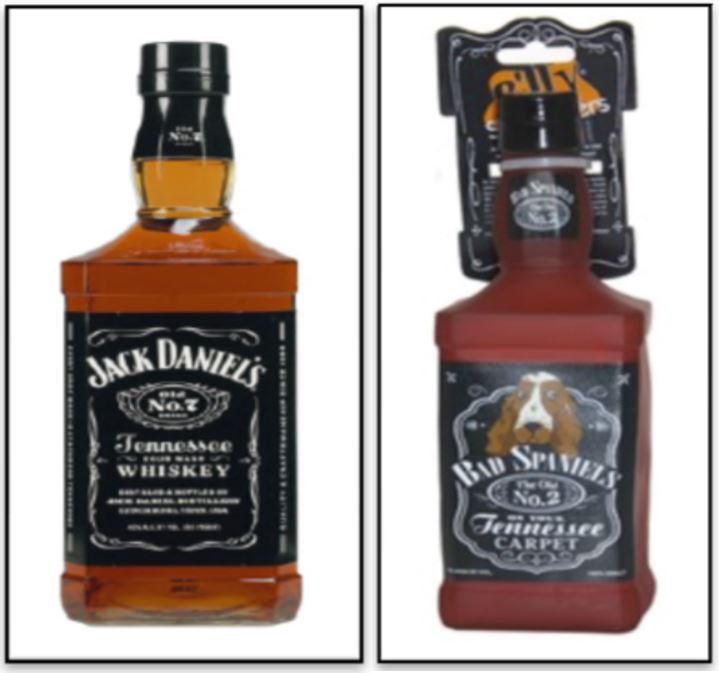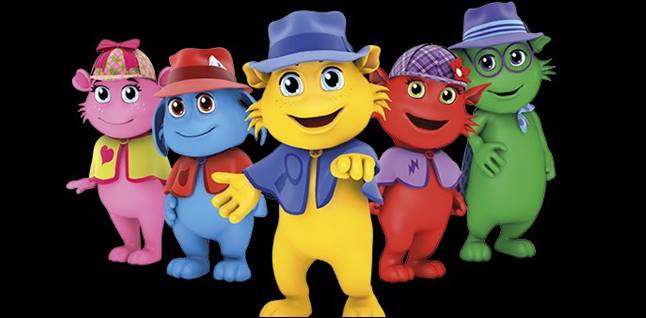 VIP Products sells the “Bad Spaniels Silly Squeaker” dog toy, which resembles a bottle of Jack Daniel’s Old No. 7 Black Label Tennessee Whiskey, but has light-hearted, dog-related alterations. For example, the name “Jack Daniel’s” is replaced with “Bad Spaniels,” “Old No. 7” with “Old No. 2,” and alcohol content descriptions with “43% POO BY VOL.” and “100% SMELLY.”
VIP Products sells the “Bad Spaniels Silly Squeaker” dog toy, which resembles a bottle of Jack Daniel’s Old No. 7 Black Label Tennessee Whiskey, but has light-hearted, dog-related alterations. For example, the name “Jack Daniel’s” is replaced with “Bad Spaniels,” “Old No. 7” with “Old No. 2,” and alcohol content descriptions with “43% POO BY VOL.” and “100% SMELLY.”
Comments closed
